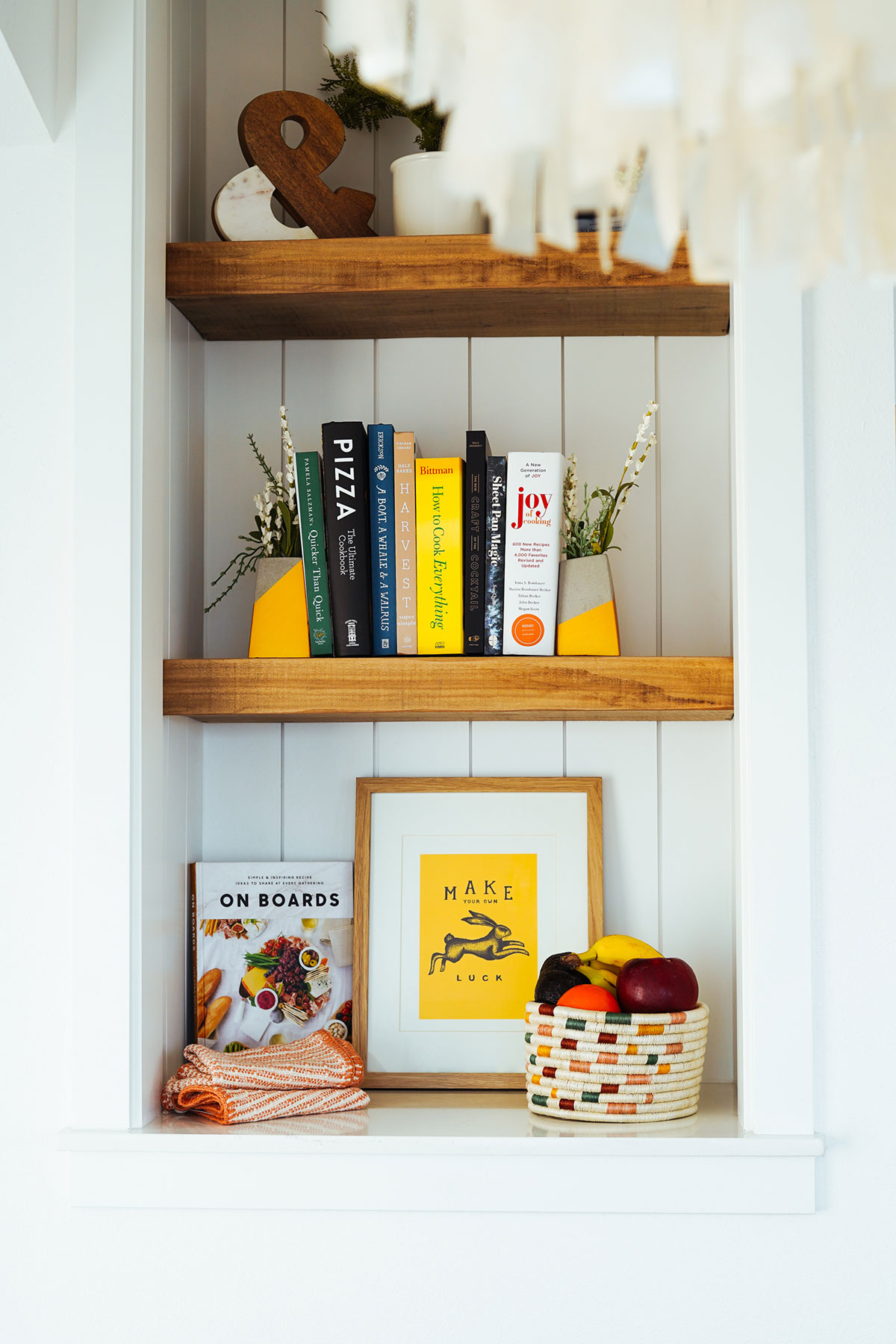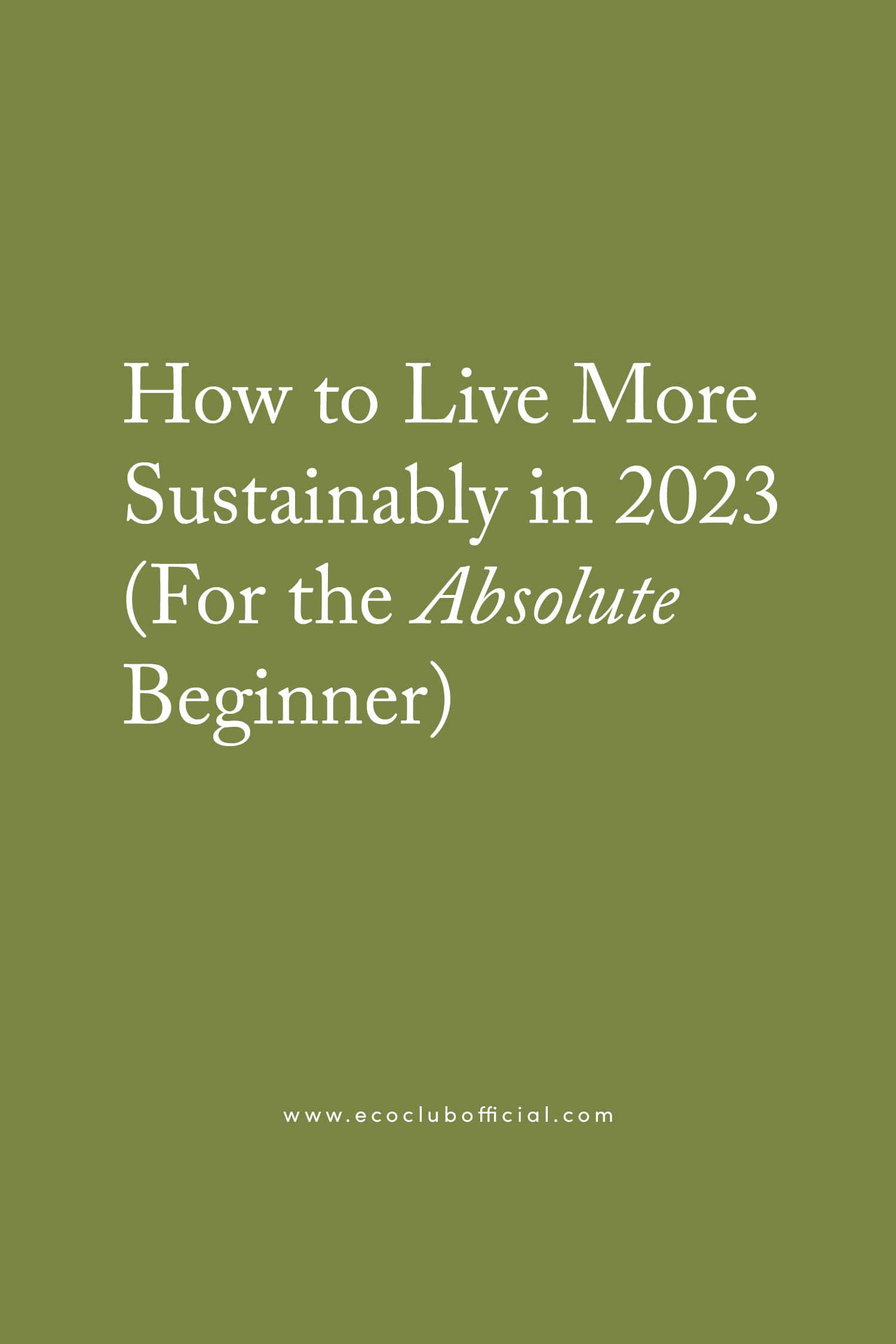Every year, we try to come up with fresh, easy ways to inspire people to live more sustainably. I mean, name a more important New Years resolution. And every year the stakes get higher. So much of the damage we’ve done is irreversible, and that only makes it more important to incorporate environmentally friendly habits into your routine. But, as overwhelming and anxiety-inducing as that can be, your habits can remain simple and true to you. If you’re looking for a place to start—and perhaps one that doesn’t focus on reusable water bottles and tote bags—try these simple solutions.

how to live more sustainably this year
To live more sustainably this year, all you have to start with is questioning some of the things you’ve always been doing. You can’t change your actions if you don’t change your thinking. Like any new habit or skill you want to learn, being open minded and willing to question everything is key to growth. As you evolve in your sustainable living journey, you’ll wander into more nuanced and complex territory. But for now, focus on things that are so engrained in your routine that your brain has on autopilot. Here are a few simple things over the years that I began to question that have had an impact on my actions. Remember, you can do this with any habit you currently have!
Driving short trips
So many people drive to places within walking distance, even if the weather is nice or they aren’t hauling anything back home. Later they’ll drive to the gym and walk the treadmill. It’s all just part of the routine. Consider some of your errands, and whether you can combine them with getting a little exercise and fresh air, rather than driving from place to place and keeping your movement separate. I like this simple tip because while it might not make the biggest environmental impact right away, it can contribute to a healthy lifestyle change and a happier you!
Palm oil
Unsustainable palm oil is in 80% of the products on the shelves in our grocery stores. And that is a major problem. Read through this quick guide to quitting palm oil, and commit to questioning this ingredient when it shows up in the foods and products you enjoy. (Click here for more resources.)
Air travel
Transportation in general is a big contributor to climate change, and like cars, we often see air travel as non-negotiables in our lives. Apparently, aviation contributes to more carbon emissions than most countries do. What makes it different than other forms of transportation is that you burn a lot of fossil fuels, FAST, every time you fly. Further, there’s no easy solution to the problem. I’m not going to suggest we all stop flying (I truly believe experiences gained through travel can be a catalyst for positive change in countless ways) and yeah, I know like so much of everything else it’s the wealthy that does the most damage here, but it’s certainly something to question and consider solutions for, such as:
-
- Choose nonstop flights over layovers, if you can afford it. The take off and landing process can account for about a fourth of a flight’s total emissions, so direct is generally better.
- If you’re traveling with others, driving is generally more eco-friendly than flying. That’s not always practical of course, but interesting to think about if you’re considering flying somewhere you could drive to in a handful of hours (which is something I know a lot of people here on the west coast do.)
- Consider your purchases. Everything you purchase went through a journey to get to you. The flowers in your grocery store may come from Colombia (and had to travel in temperature-controlled vehicles); those one-click buys from Amazon travel from all over the globe. If cutting down on your own travel isn’t reasonable, cutting down on the travel your things experience certainly is! Btw, if you’re looking for an easy guide to start shopping more sustainably, we’ve got one right here!
Waste disposal in your area
If you’ve been even a little bit interested in living more sustainably the past few years, you’ve undoubtedly heard the universal advice to reuse, recycle, and more recently compost. You’ve probably also heard about recyclable, compostable, and biodegradable packaging on your goods, all of which are different ways of going about cutting down what gets tossed into the landfill. But literally none of this matters if you don’t know what waste disposal resources are available in your area. This varies from country to country, state to state, county to count, even at the city level resources can differ widely. You and your friend could live twenty minutes away from each other and have different experiences getting rid of waste. It’s totally frustrating, but you can make it a little less-so if you check out your own area’s resources (.gov sites are a good place to start, how2recycle is good too).
Is mindful Amazon shopping a thing?
Let’s talk about the big ol’ digital elephant in the room. Can you really live more sustainably if you shop on Amazon–one of the largest drivers behind excessive consumerism to ever exist? Here’s the thing. Even if you’re not ready to give it up completely (I’m not either), whether it’s because there are things that are more affordable, accessible, or convenient to you, there are still things you can do to lessen the negative impact.
- See above–try not too be too trigger happy with that Prime button and consider that everything goes on a journey to get to you.
- Avoid buying what you could easily pick up on your weekly grocery runs… You’re doing them anyway.
- When it gives you the option, choose to ship in fewer packages.
- Use AmazonSmile. Choose your organization of choice and add the link smile.amazon.com to your bookmarks to get in the habit of using it every time you go to shop. When purchasing through this link, which you can also set up in the app, Amazon donates 0.5% of your eligible purchases to that charity. Sure, it’s small, but it doesn’t cost you a thing, and it’s quite literally the least they can do… Might as well make them do it!

When you come across an amazing sustainable solution to a problem you’re having, let people know! This is not to say go preaching to all your friends (unless they like when you do that kinda thing), but so many of us love learning new tricks to be more eco friendly, and when you find something simple and effective, it’s worth sharing.
What will you do to live more sustainably this year and into the future? Let us know which topics (above or otherwise) you’d like to see us expand on!
photo by Charity (@charityvictoria)

your two cents